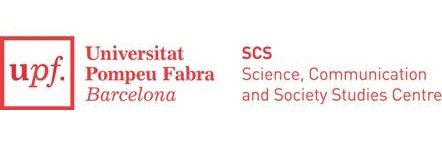MODULE B1
Semi-structured interviews with observers/stakeholders (at science centre, science event and science city level)
We are interested in the views of our selected interviewees in their role as privileged observers or stakeholders in the process. In other words, what they think about the impact of SCIPs (science communication initiatives and policies) on the political sphere and the city itself. It is important to differentiate module from Module C1 which is focused on the analysis of the impact of such SCIPs on the interviewees themselves.
STAKEHOLDERS TO BE INTERVIEWED
Decisions about who to contact and interview need to be based on local knowledge of each case. A minimum of 5 interviews is considered necessary for each case, though a greater number is recommended. All teams should justify their choice of interviewees, that is to say, explain why were these people chosen. As the aim is to assess impacts on a political institutional level, teams should preferably arrange interviews with stakeholders, as privileged observers for any given case study, from the following categories:
– Local or regional authorities and administration
– Local research institutions
– Local educational establishments, including schools and universities
– Local culture industry (museum, centers, events, etc.)
– Local industry or businesses
– Civil Society Organisations
– Media
– Other, please explain.
GUIDELINES FOR SEMI-STRUCTURED INTERVIEWS
The following grid for semi-structured interviews should be interpreted as a guideline. At times the discussion will stray, and then this grid might give some very valuable insights and material for our study. However, it is imperative to at least impose the structure and logic of the grid on all interviews, as we should keep in mind that, in the end, we will want to compare the findings from the interviews conducted within any given case study with the findings from the other countries. That is quite a challenge for comparative qualitative research. All interviews should be carefully recorded. For further technical details on how to conduct semi-structured interviews, please refer to the Methodological Considerations Chapter (p.25).
« Dear “interesting observer X”, thank you so much for taking the time to participate in our research, your views and experiences are invaluable for this European Project.
Broadly speaking, we are interested in your views on four broad categories of impacts of [ELIMINAR INTRO] Science Communication Initiative and Policies in (name of city): Social and economic impacts, possible impacts on quality of life, impacts on policies and impacts on education. On the one hand, we are interested in your experience and judgements about what has happened in (name of city) until now. On the other hand, we are also very interested in knowing more about how you reckon things will develop in the future, for example from now until 2020.
We can begin our discussion by talking about the broad category of Social and Economic Impacts of SCIP in (name of city). We have a set of questions that are being asked across Europe, so shall we just start? »

